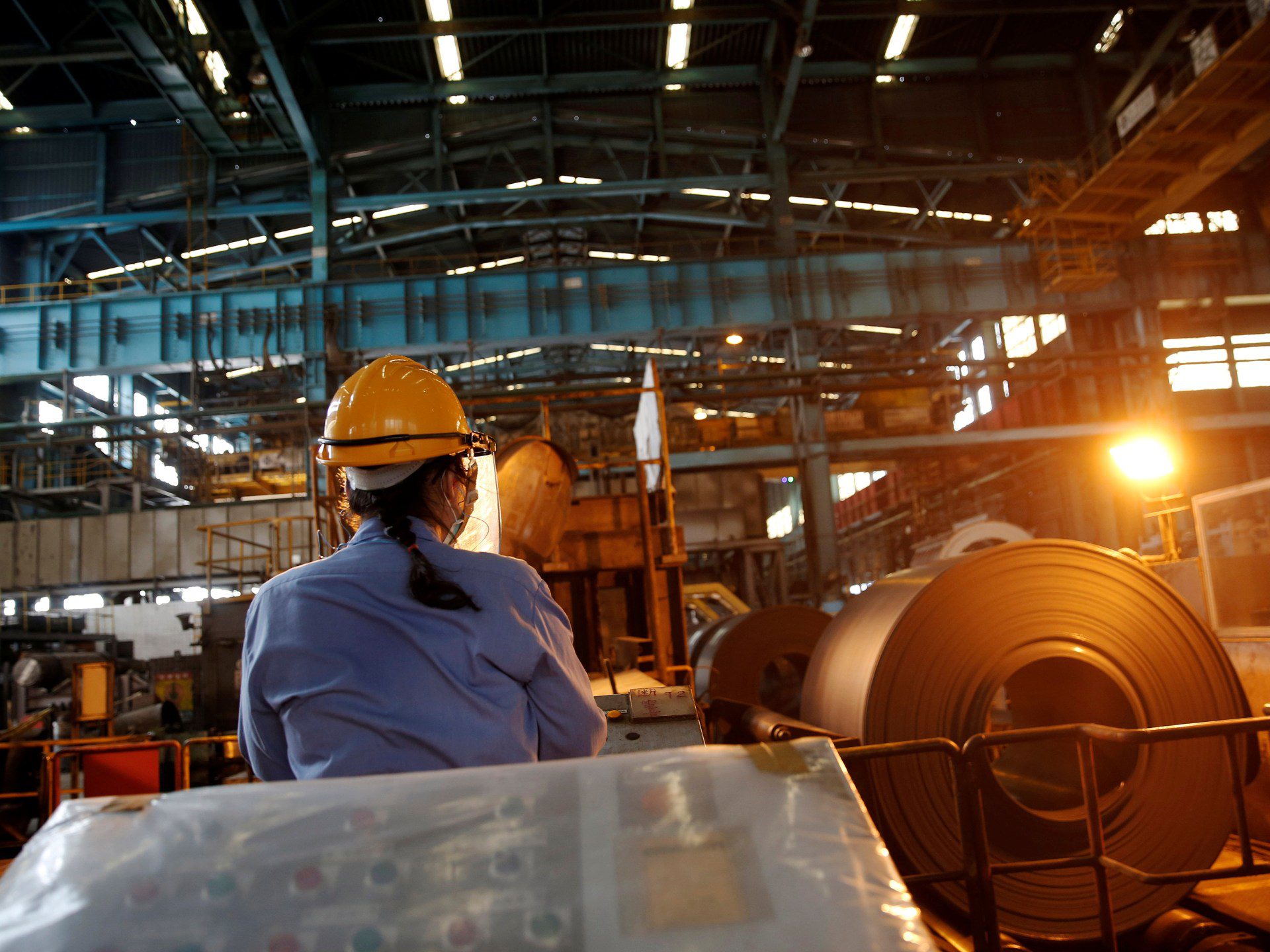Despite slowdown, data points to reliance of Chinese economy in the face of Donald Trump’s tariffs.
China’s industrial output and retail sales growth have slowed amid trade tensions with the United States.
Factory output grew 6.1 percent year-on-year in April, down from a 7.7 percent rise in March, data released by China’s National Bureau of Statistics showed on Monday.
While down compared with the previous month, the figure beat analysts’ expectations.
Analysts polled by the Reuters and Bloomberg news agencies had respectively forecast growth of 5.5 percent and 5.7 percent.
Retail sales grew 5.1 percent year-on-year, slower than the 5.9 percent growth recorded in March and below analysts’ forecasts.
Fixed-asset investment, which includes property and infrastructure investment, rose 4 percent.
Unemployment fell slightly, from 5.2 percent to 5.1 percent.
The latest data is likely to bolster hopes of China’s economy remaining resilient in the face of US President Donald Trump’s tariffs, after gross domestic product expanded a better-than-expected 5.4 percent in the January-March period.
The National Bureau of Statistics said the economy maintained “new and positive development momentum” due to Beijing’s economic policies, despite the “increasing impact of external shocks”.
“However, we should be aware that there are still many unstable and uncertain factors in external environment, and the foundation for sustained economic recovery needs to be further consolidated,” the statistics agency said in a statement.
The economic figures are the first to be released since Washington and Beijing last week agreed to dramatically reduce tariffs on each other’s goods for 90 days.
Under the deal reached in Geneva, the US lowered its tariff on Chinese goods from 145 percent to 30 percent, while China slashed its rate from 125 percent to 10 percent.
“The risk is that tariffs remain in place for a long time, and eventually, we see production offshored,” Lynn Song, chief economist for Greater China at ING, said in a note on Monday.
“But amid tariff unpredictability, not just for China but across the world, few companies will be rushing to commit resources to set up offshore manufacturing facilities. This could mean that a decent portion of China’s manufacturing and exports will be less impacted than originally feared.”
Anurag Dhole is a seasoned journalist and content writer with a passion for delivering timely, accurate, and engaging stories. With over 8 years of experience in digital media, she covers a wide range of topics—from breaking news and politics to business insights and cultural trends. Jane's writing style blends clarity with depth, aiming to inform and inspire readers in a fast-paced media landscape. When she’s not chasing stories, she’s likely reading investigative features or exploring local cafés for her next writing spot.






